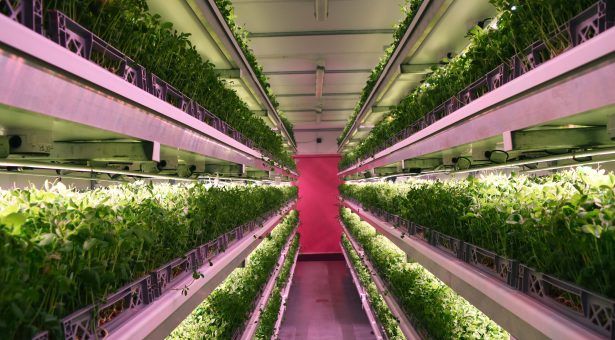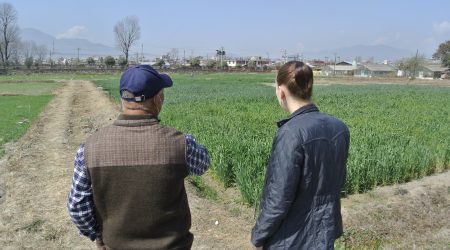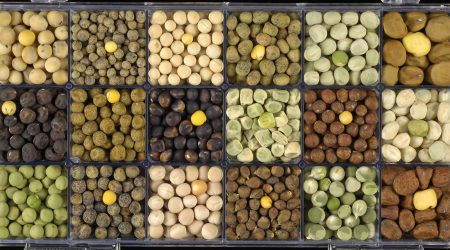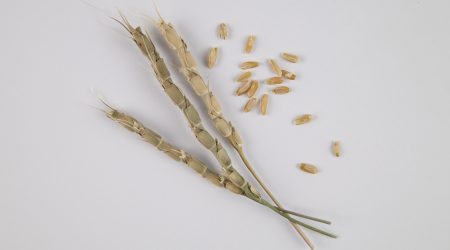Pea-powered innovation delivers vitamin B12 daily dose

Pea shoots which contain the recommended daily dose of vitamin B12 fortified in a single small portion could soon be a tasty and healthy addition to your salad.
The team of UK researchers from the John Innes Centre, LettUs Grow and the Quadram Institute have discovered a way to biofortify pea shoots with B12 using ultrasonic aeroponic technology.
B12 is traditionally obtained from animal source in our diets, and deficiency of this vitamin can lead to severe and irreversible damage, particularly to the brain and nervous system. Using this new method, a standard salad bag could contain as much B12 as two portions of beef.
The new B12 pea shoots were grown in aeroponic indoor farming, and Professor Antony Dodd, Head of Cell and Developmental Biology at the John Innes Centre, said: “Advances in understanding of how plants interact with their environments, including new horticultural technologies such as vertical farms that use aeroponics, provides exciting opportunities to produce crops that are more nutritious, with less environmental impact.
“By combining expertise in plant sciences, human nutrition and horticultural engineering, we are developing new approaches to address nutritional deficiencies, at relatively low cost.”
The type of aeroponics used to grow the biofortified pea shoots is unique to LettUs Grow. Lilly Manzoni, Head of Research and Development at LettUs Grow said: “Something that’s really exciting about this project in particular is that it is the first time the enhanced yield potential of aeroponics has been combined with the nutrition enhancement of B12 fortification in a way that can be scaled up to commercial volumes.”
The technology uses sound that travels at frequencies above 20,000 Hz – above the range of human hearing – to shake water until it disperses into a mist. This mist is used to provide water and nutrients to the crop. Because this method allows precise control of nutrient delivery, the team have been able enhance the nutritional profile of the pea shoots increasing the levels of B12.
Professor Martin Warren, Chief Scientific Officer at the Quadram Institute said: “This is a really exciting development in providing an adequate intake of vitamin B12 to enhance overall health and well-being. B12 plays a crucial role in various bodily functions, including red blood cell formation, nerve function, and DNA synthesis. Many people, especially those on plant-based diets are prone to B12 deficiency and insufficiency – and while vitamin B12 supplements are available, some people may find it more convenient and natural to obtain essential nutrients directly from whole foods.”
Scientists have identified Vitamin B12 as one of the nutrients that hold immense promise for biofortification, in a project funded by Biotechnology and Biological Sciences Research Council (BBSRC).



